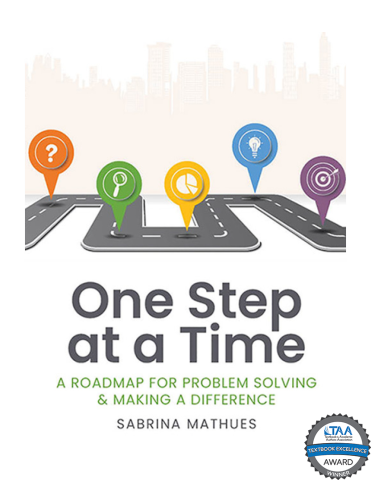Questions? Request Information
Start Your Path to Prepare Young Learners
Prepare to work in the early childcare field and maintain a professional edge over the competition with an online Associate of Arts in Early Childhood Education degree from the University of Arizona Global Campus. You’ll learn the basics of child learning and development, as well as strategies to help young children grow. Earning your associate degree is your first step in building a foundation for success in the world of childcare.
This program focuses on important topics in early childhood, such as development, learning assessment, special learners, and instructional strategy, offering a comprehensive path for those aiming to pursue careers in this rewarding field. The program consists of 67 credits and can be transferred to a bachelor-level program in ECE.
Upon completion of the AA in Early Childhood Education degree program, you will be able to:
- Apply knowledge of child development, theoretical perspectives, and developmentally appropriate approaches to support the diverse learning needs of every child
- Determine how assessment data is used to inform curriculum and instructional practices
- Analyze the components of effective classroom management and high-quality learning environments that are healthy, safe, respectful, supportive, and culturally responsive
- Describe strategies to promote effective family and community partnerships
- Identify the professional standards and ethical behaviors necessary to maintain a commitment to professionalism and growth as an early childhood educator
UAGC Award-Winning Curriculum
Military Students $250.00/credit
Undergraduate Courses $460.00/credit
Technology Fee** $115.00/course
Books and Other Class Materials** $125.00/course

UAGC offers enrolled students access to ScholarshipUniverse, a platform that tailors external scholarship opportunities to your unique situation, making it easier to find and apply for scholarships.
UAGC is proud to provide reduced tuition rates for our academic and corporate partners, helping community college transfer students and corporate employees earn their degrees at a lower cost.


Early Childhood Education Course Overview
To earn your associate degree in early childhood education at the University of Arizona Global Campus, you must complete 67 credits. A total of 18 credits must be completed at UAGC to meet the residency requirement. You may be able to transfer up to 49 approved credits from community colleges, other previous college coursework, or other life experiences such as military service or job training toward your degree.
Upon completion of your associate degree at UAGC, you can transfer your credits toward any one of the bachelor’s degree programs at UAGC.
*In this program, 6 credits from the core may also satisfy General Education requirements.
This program is not designed to meet the state educational requirements for teacher licensure or certification in any state. Students seeking teacher licensure shall carefully research their state's requirements prior to enrollment and regularly review the requirements as they are subject to change. Requirements vary by state. Graduates will be subject to additional requirements on a state-by-state basis that will include one or more of the following: student teaching or practicum experience, additional coursework, additional testing, or, if the state requires a specific type of degree, earning an additional degree. None of the University of Arizona Global Campus online education programs are accredited by the Council for the Accreditation of Educator Preparation (CAEP), which is a requirement for certification in some states. Other factors, such as a student’s criminal history, may prevent an applicant from obtaining licensure, certification, or employment in their field of study.
The Child Development Associate® (CDA) Credential™ is a widely recognized credential in early childhood education (ECE). The CDA® is based on a core set of competency standards that guide early childhood professionals toward becoming qualified educators of young children. The CDA® is administered by the Council for Professional Recognition, not by the University of Arizona Global Campus (UAGC). Throughout your UAGC coursework in ECE201, ECE203, ECE 205, ECE 207, and ECE214, content related to the eight CDA® subject areas is embedded in your weekly discussions, assignments, journals, interactives and quizzes. Additionally, some of your coursework can be used to complete your CDA® Professional Portfolio should you choose to pursue obtaining your CDA®.
The University of Arizona Global Campus is a partner of the Council for Professional Recognition. Coursework for students enrolled in the AA in Early Childhood Education program at the University of Arizona Global Campus may satisfy the 120 hours of education in the eight CDA® Subject Areas and will provide a jumpstart on completing the components necessary for the CDA® Professional Portfolio. Additional steps beyond UAGC coursework will be needed to obtain your CDA®. The Council for Professional Recognition, not the University of Arizona Global Campus, is responsible for awarding the CDA®. For more information about the required steps for the CDA® please visit https://www.cdacouncil.org/en/.
Alabama Students: Authorization to provide an education program does not indicate eligibility for an Alabama professional educator or professional leadership certificate. Applicants who complete an education or educator preparation program at a non-Alabama institution must apply for an Alabama professional educator or professional leadership certificate through the Alabama Certificate Reciprocity Approach. Current requirements may be found at https://www.alabamaachieves.org/teacher-center/.
Kentucky Students: Please be advised that although the University of Arizona Global Campus offers a variety of programs aimed at preparing potential educators in diverse settings, our programs are NOT accredited in Kentucky by the Education Professional Standards Board and are NOT recognized for initial, additional, or renewal of certification or salary enhancement (rank change) for K-12 educators in Kentucky. For more information, please visit the Education Professional Standards Board’s website at http://www.epsb.ky.gov/mod/page/view.php?id=220
Certain degree programs may not be available in all states.
The Online Teaching Support Certification recognizes programs that require all online faculty to undergo training in best practices for online course delivery, provide faculty with ongoing pedagogical support, encourage faculty professional development to increase their knowledge and skill in online teaching, emphasize instructor availability and feedback to learners, and collect and use feedback from learners to improve online teaching. Learn More

The Online Learner Support Certification recognizes programs that provide all the critical student and academic services needed for learner success and use learner feedback to continuously improve those services.

What Can I Do with a Degree in Early Childhood Education?
With an associate degree in early childhood education, some of the career paths you may be able to pursue include:
- Teacher Aide
- Educational Assistant
- Childcare Worker
- Tutor
Gain insights into the early childhood education job market by reviewing the Bureau of Labor Statistics market outlook report.
UAGC gave me the time and freedom to serve my community and to work towards a career educating future generations.
AA in Early Childhood Education FAQs
-
An associate degree in early childhood education can be the first step toward a fulfilling career in working with young children. Here are some key reasons why you might consider pursuing this degree:
- Flexibility: With 100% online coursework, our program offers flexibility, allowing you to balance work, family, and education.
- One Class at a Time: Take one 5-week class at a time, focusing on just one subject at a time, so you don’t have to juggle multiple classes and coursework at once.
- Foundation for Further Education: If you decide to pursue a bachelor's degree later, your associate degree can often transfer credits, saving you time and money.
Ultimately, an associate degree in early childhood education can provide you with the knowledge and skills to make a positive impact on the lives of young children.
-
You can pursue jobs in education with an associate degree in early childhood education. While a bachelor's degree may open the opportunity to pursue more advanced roles, an associate degree is a great starting point for many positions in early childhood education.
-
An AA in Early Childhood Education is designed to provide you with the foundational knowledge and skills needed to work with young children. At UAGC, your coursework will focus on important topics in early childhood education, such as development, learning assessment, special learners, and instructional strategy.
-
Volunteering at local daycare centers, preschools, after-school programs, and community organizations can help you gain hands-on experience working with young children. Finding part-time work or internships in schools, tutoring, and childcare centers can also enhance your education.
-
Earning an AA in Early Childhood Education online can offer several benefits, but it depends on your learning style and goals. Carefully consider your career goals and state licensing requirements to make sure an online degree meets your needs.
Here are some of the advantages of pursuing an online associate degree at UAGC:
- Flexible Online Classroom: An online classroom experience gives you the flexibility to create your own schedule. You will have access to 24/7 online support and service along with all the tools and technology needed for you to successfully complete your program coursework.
- Educational Format: Take courses that are five weeks long, and instead of taking multiple classes all at once, you’ll take just one class at a time.
- Qualified Faculty: Learn from faculty with real-world experience and top academic credentials.
See What Else UAGC Has to Offer
Questions? Request More Information
To access this rate using the Liberty Grant, only eligible undergraduate active duty service members, members of the National Guard, Reservists, spouses of active duty, members of the National Guard and Reservists, Department of Defense employees using Tuition Assistance (TA), and civilian employees of the United States Coast Guard (only if utilizing Military Tuition Assistance) will qualify.
The Technology Fee covers access to University systems such as the online classroom, the Student Portal, and other academic resources. The Technology Fee and the Course Digital Materials (CDM) Fee are fully refundable if a student does not attend beyond Day 3 of a course (Week 3 if covered under the University of Arizona Global Campus Promise Refund Schedule). After this time, the fee becomes non-refundable. Students are charged the Technology Fee for repeated coursework. Students are not charged the CDM fee for repeated coursework if previously charged.
†
The transferability of credits is subject to the University of Arizona Global Campus transfer credit policies and requires the submission of official transcripts. The official transcripts will be evaluated by the Registrar’s Office to determine the credits that will officially apply toward a UAGC degree program. Credits must be earned at the same degree level in order to be applied. Additional restrictions may apply. See the UAGC Academic Catalog for full undergraduate and graduate transfer policies.





